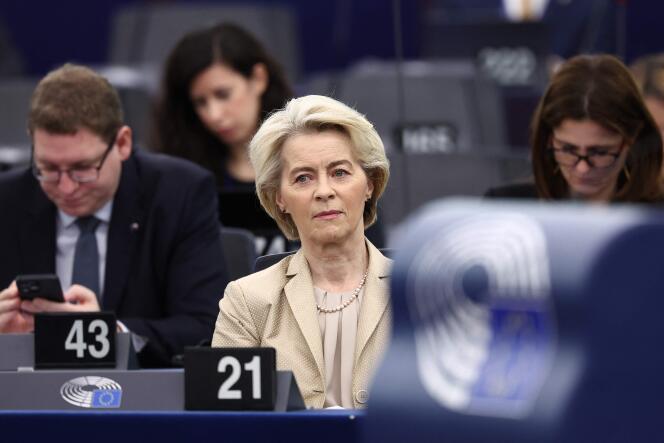


Since the beginning of the war in Ukraine on February 24, 2022, the politically and legally complex question of using frozen Russian assets to aid Kyiv has arisen. The United States and the United Kingdom express support for it, but the European Union (EU), where the majority of these assets are located, appears more cautious.
On Wednesday, February 28, Ursula von der Leyen nevertheless took a step forward. "It is time to start a conversation about using the windfall profits of frozen Russian assets," declared the Commission President before the European Parliament in Strasbourg. "There could be no stronger symbol and no greater use for that money than to make Ukraine and all of Europe a safer place to live", she stressed.
While the EU has frozen, according to the Commission, around 28 billion euros worth of yachts and other properties owned by Russian or Belarusian oligarchs in the name of sanctions against Moscow, they do not plan to seize these private properties.
However, they do not rule out using, in one way or another, the 200 billion euros of assets from the Central Bank of Russia currently frozen on their soil (out of a total of 269 billion immobilized worldwide), mostly in Belgium, where they were deposited with Euroclear.
Belgium, which taxes the income of this international funds depository, has already announced plans to allocate 1.7 billion euros to Ukraine this year. However, this initiative is unrelated to what the EU could potentially do.
Poland and the Baltic States are urging their partners to take action, even though international law prohibits the seizure of one's assets by another. Paris, Berlin, and Rome, for their part, have always been extremely hesitant to confiscate these assets, fearing it could alarm third countries, discourage them from investing their money in the Old Continent, and weaken the euro.
These three pillars of the EU worry more specifically that China, fearing the seizure of its assets in case of conflict, will distance itself from Europe. They also point to the retaliatory measures the Kremlin could take. "We do not have the legal basis to seize Russian assets," reiterated Bruno Le Maire from Sao Paulo, where he was attending the G20 summit on Wednesday, February 28. The French Economy Minister stressed the importance of respecting "international law and the rule of law."
The Europeans therefore agreed to examine what they could do with the interest alone generated by the Russian Central Bank's 200 billion euros frozen in Europe. They have decided to proceed in two steps: first, require deposit managers to isolate the income from these assets in Europe – this provision has been effective since February 14 – before considering further action.
You have 38.56% of this article left to read. The rest is for subscribers only.
